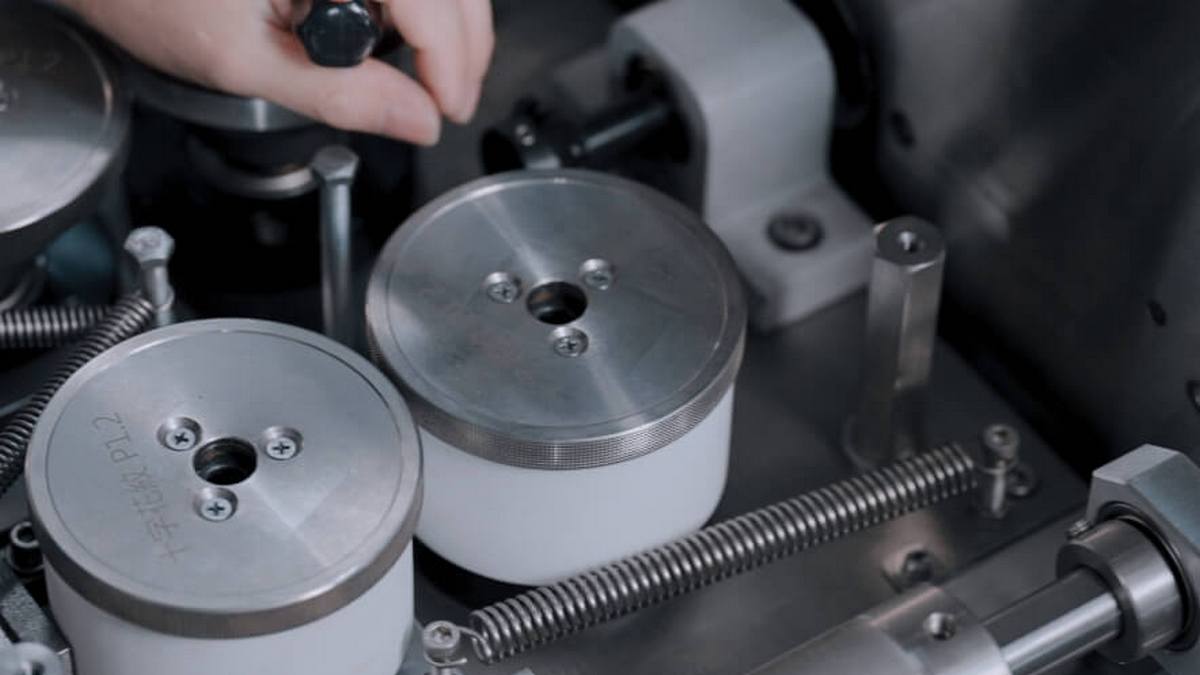Through national key projects, the Taiwanese government announced that it plans to invest more than one trillion yuan in transportation technology to stimulate the development of convenient transportation and boost the Taiwan economy.
What is an Intelligent Transportation System (ITS)?
Intelligent Transportation System (ITS) is an efficient integration of advanced information technology, communication technology, sensor technology, control technology, and computer technology, to establish a large-scale transportation management system. An integrated transportation and management system that functions internally, in all directions, in real time, accurately, and efficiently.
Taiwan's smart transportation industry development
To cope with the rapid changes brought about by technological innovation, Taiwan’s Ministry of Transportation specially established the "Transportation Technology Industry Report" to promote cross-domain exchanges between industry, government, education, and research. Through governance innovation, linking technology, industry, and society, a new future for the transportation technology industry will be opened.
The Transportation Technology Industry Report will help various government ministries and committees have closer exchanges. In addition to proposing strategies and action plans for short, medium, and long-term industrial development, the white paper states that it is hoped that under the overall structure, through Taiwan’s digital national innovation economic development plan, and the five-plus-two industrial innovation plan, these two cross-field national important constructions can be implemented to assist the development of the transportation technology industry. Over the next four years, the Taiwanese government will also invest a trillion yuan to launch the largest governance innovation and industry promotion project ever, with the largest number of participants ever.
Optimizing transportation with innovative technology, to lead Taiwan's economy to take off
"Transportation construction is an important driving force for the country's economic take-off." Taiwan will make every effort to promote smart transportation, rail construction, and smart sea and airport design, to assist Taiwan’s industry in developing its technology and ensuring the improvement of the quality of life of the Taiwan people. This will help Taiwan to be known as an internationally renowned, intelligent, transportation technology island.
Looking to the past, the Ministry of Transportation has determined that there should be no delay in placing more emphasis on the supervision of engineering construction. Over the next ten years, Taiwan will invest about two trillion in transportation, and it is expected to drive four trillion in economic output value. Recently, more and more Taiwanese companies have been returning to Taiwan, and this, along with major international high-tech manufacturers increasing their investment in Taiwan, has allowed Taiwan to reposition itself as a global, high-end manufacturing center. The Ministry of Transportation and the Ministry of Economic Affairs will cooperate to promote services, which they hope will allow industries to work together to create win-win business opportunities.
-
Railway Technology Industry Group: Let Taiwan's power rise internationally
The railway industry is a high-tech industry with the largest overall investment of technology in the transportation industry. Starting from the national car manufacturing sector, the future will continue to promote intelligent railways and the localization of railway electromechanical systems. It will not only strengthen industrial technology, but also expand domestic manufacturing to encourage the formation of a national team to promote the future strength of the industry.
In order to promote Taiwan's railway technology and experience onto the international stage, the establishment of testing and verification methods consistent with international standards and planning related fields is essential. It will also be the direction of future efforts taken to fully demonstrate Taiwan's railways’ power and high quality.
-
Smart Electric Bus Technology + Smart Public Transport Service Industry Group: Let happiness come to your home
When it comes to cross-domain integration and value-added applications of public transportation, cross-domain integration between systems must be realized. This will include ticket integration, schedule integration, and even service level integration. Starting from the concept of "Happy Bus", the Smart Public Transport Service Industry Group will actively become a part of the smart city. The group will apply regional integration and big data, from the smart electrification of carriers, to the management of the entire smart road network.
In addition, because electric buses are an international trend, the Ministry of Transportation expects to fully replace existing busses with electric buses by 2030. The goal will be to improve the urban air pollution problem, and at the same time create a domestic electric bus industry that will include self-driving technology, charging capabilities and related solutions to keep pace with international standards.
-
Smart sea and airport + smart logistics service industry group: towards quality, safety, efficiency, and sustainability
Because the investment in the smart sea, airport, and smart logistics is second only to railway construction, it is expected that the future will be able to create an output value of up to 500 billion yuan. In terms of specific actions, in addition to making good use of technology to improve the quality, safety, efficiency, and sustainability of sea and airports, including ship dynamic management systems and smart customs clearance systems around sea areas, technology can also be used to enhance services and create advantages. This will increase industrialization, localization, and information transfer.
Secondly, in the part of smart logistics, integrating upstream, midstream, and downstream industrial platforms and planning free trade port areas to fully meet the needs of industrial development; Taiwan also hopes to comply with the current latest omnichannel logistics trend to assist in the upgrading of the logistics industry.
-
Unmanned Aerial Vehicle Technology Industry Group: Accelerate the experimental field and management
In response to the current application of drone technology and the future of the industry, through cross-domain cooperation and collaboration, we hope to base ourselves in Taiwan and look at the world to play the World Cup together. At present, the domestic industry is leading in technology, but what is lacking is the opportunities and experimental fields for practical application and technical trials, so it needs to be integrated and provided by various ministries. The second point is the relevant regulations. How to regulate management through amendments will become the focus, such as How to coordinate and cooperate with the navigation channel of the drone is worthy of attention.
In addition, the attitude of the local government will also affect future industrial development, hoping to promote good communication and help promote management energy. Finally, there is the acceleration of the cultivation of R&D and management talents, which will inject more kinetic energy into the industry.
-
5G Smart Transportation Experimental Field + Transportation Big Data Technology Industry Group: Practice 5G imagination and build an ecological laboratory
In order to create a smart transportation system with "people-oriented transportation, people feel", the 5G smart transportation experimental field promotes cross-domain cooperation. Emerging transportation industry standards and verification mechanisms will be applied. Laws and regulations will be applied to create an industrial value chain that will promote expanded industrial and ecological goals, making Taiwan an international level 5G MaaS investment area.
The application of 5G is not limited to telecommunications and transportation. The impact of technological innovation on various industries will continue to expand. Government departments should think forward and help the industry to face the future together.
Revolutionary changes in the transportation industry
Greenhouse gas emissions and traffic congestion in the transportation industry have caused extremely high economic losses. Therefore, improving transportation through six revolutionary trends has become the top priority:
-
Virtual Reality
Admiring scenery through virtual reality is the least environmentally harmful travel method. In the future, people can easily enjoy the beautiful scenery through very realistic 3D vision and VR hardware.
-
Micro-mobility
According to data from the U.S. Department of Energy, in 2018, nearly 60% of car travel was less than 6 miles from home. In 2017, half of car travel was less than 3 miles from home, and up to three-quarters was less than 10 miles. This means that many cars are idle, and there are not many opportunities for humans to use personal cars for their daily trips. However, bicycles and scooters with micro-mobility characteristics can achieve the same purpose as driving.
-
Electric vehicles
According to statistics, the sales of electric vehicles in 2017 exceeded 1 million for the first time, and in 2018 it doubled to 2 million. It is estimated that by 2040, electric vehicles will account for more than half of all new car sales.
To encourage manufacturers to develop electric vehicles, some countries have even begun formulating policies that prohibit the import of traditional cars. For example, Norway announced a ban on the import of cars with internal combustion engines by 2025. India also announced a ban on imports from 2030, and France and the United Kingdom banned imports by 2040.
-
Hydrogen-powered ships
Propelled by the combination of renewable energy and hydroelectric power, the ship is favored by environmentalists because of its zero greenhouse gas emissions.
-
Rail transportation combined with a high-speed rail network
Traditional railway transportation is a very environmentally friendly mode of transportation. Nowadays, combined with the high-speed railway network, it can exert its influence even more. Compared with traditional cars, the greenhouse gas emissions per kilometer of railway transportation will be reduced by 80%. In addition, the amount of manpower that can be transported is larger and faster, which can solve the problem of traffic congestion, save traffic time, and facilitate travel between different places.
-
Flight taxis and autonomous driving taxis
Both Boeing in the aviation industry and Porsche in the automotive industry will enter the market of flying taxis. Boeing has always led innovation in the aviation sector; although Porsche is not known for its sales volume, its high profits have always been impressive. Therefore, the advent of future flight taxis is very worth looking forward to.










.jpg)



